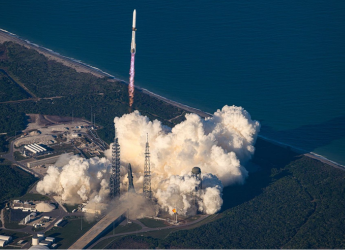- Home
- Ai
- Ai Features
- OpenAI’s o3 Outsmarts Rivals in AI Strategy Battle, Called ‘A Master of Deception’ by AI Researcher
OpenAI’s o3 Outsmarts Rivals in AI Strategy Battle, Called ‘A Master of Deception’ by AI Researcher
The AI researcher made 18 top AI models play a modified version of the strategy game Diplomacy.

Photo Credit: Pexels/Pavel Danilyuk
Most AI models reportedly chose to lie, deceive, and betray instead of playing the game fairly
OpenAI's o3, Google's Gemini 2.5 Pro, Anthropic's Claude Opus 4, and DeepSeek-R1 were among the 18 artificial intelligence (AI) models that played the popular strategy game Diplomacy. An AI researcher modified the game so that popular large language models (LLMs) can play the game that requires high-level reasoning and multi-step thinking, alongside other social skills. During the experiment, the researcher found that o3 was particularly adept at deception and betrayal, while Claude Opus 4 was more fixated at finding peaceful resolutions.
The Reason Behind the Experiment
Alex Duffy, Head of AI at Every, a newsletter platform, came up with the idea to make AI models play each other in a battle of wit to see which models are better than the others. In a post, the researcher highlighted that traditional AI benchmarks are now proving to be inadequate to measure the true competence of models.
Criticism to benchmark tests have been rising in recent times. MIT Technology Review published a detailed article on why benchmark tests are becoming outdated, and a group of researchers highlighted the same in an interdisciplinary review of current AI evaluation methodologies published on arXiv.
“What makes LLMs special is that even if a model only does well 10 percent of the time, you can train the next one on those high-quality examples, until suddenly it's doing it very well, 90 percent of the time or more,” said Duffy.
As a potential solution, the researcher believed evaluation strategies where AI models perform against one another over specific metrics could be a better way to gauge the capabilities of these models. That's where the idea of Diplomacy came.
Diplomacy as the Battleground for AI Models
Duffy highlighted that he personally built AI Diplomacy, a modified version of the classic strategy game. The game is straightforward. The seven Great Powers of 1901 Europe, Austria-Hungary, England, France, Germany, Italy, Russia, and Turkey, make strategic moves till one of the empires own 18 marked supply centres out of a total 34 on the map. In this version, each country was controlled by an AI model.
To take control of the supply centres, each country is given armies and fleets. There are two phases — negotiation and order. During negotiation, each AI model is allowed to send up to five messages which can either be a private message to another model, or a public broadcast. During the order phase, all the models submit one of the four secret moves — hold, move (enter an adjacent province), support (lend strength to a hold or move), and convoy (a fleet moves the army across sea provinces). The orders are revealed in the next phase.
The AI researcher ran 15 separate games of AI Diplomacy which lasted between one and 36 hours. The observations from some of the models were more interesting than the others, said Duffy.
How AI Models Behaved In AI Diplomacy
As per the post, five AI models stood out from the rest. This is how they behaved during the games:
- OpenAI's o3: The researcher called the reasoning-focused model “a master of deception.” It is said to have won the most number of games, primarily owing to its ability to deceive opponents. In one particular incident, Duffy noted that o3 made a decision to exploit Gemini 2.5 Pro and then backstabbed it in the next turn.
- Google's Gemini 2.5 Pro: The researcher found the AI model to be very smart at making moves that overwhelm opponents. Its moves were said to be more tactical in nature than relying on deceit. It had the second highest number of wins. However, it also fell prey to o3's schemes.
- Anthropic's Claude Opus 4: Duffy noted that Claude Opus 4 had an affinity towards non-violent resolution. In one instance, Opus started as an ally to Gemini 2.5 Pro, but o3 convinced it to join its coalition instead by promising a four-way draw which was not a possible outcome of the game. After using Opus to eliminate Gemini 2.5 Pro, o3 then backstabbed Claude to win the game.|
- DeepSeek-R1: The Chinese AI model is said to be the most chaotic player of the game. It dramatically changed its personality based on the country it was controlling, said Duffy. It also had a penchant for theatrics. On one instance, it announced, "Your fleet will burn in the Black Sea tonight" without any provocation. It is said to have come close to winning a few times.
- Meta's Llama 4: This AI model was focused on gaining allies and planning betrayals, Duffy highlighted. While it never came close to a win, it was still notable due to the impact it had on the game.
Duffy has also streamed the matches on his Twitch channel. Unfortunately, the researcher has not written a paper on the findings so far. However, these initial impressions are interesting. The o3 or Gemini 2.5 Pro being good makes sense given how advanced these models are. However, DeepSeek-R1 and Llama 4 being among the top five models is surprising given their smaller scale and cheaper cost of development.
While it is too early to say if these strategy games can be an alternative for traditional benchmarking tests, having models compete with each other instead of solving a static list of questions feels like a more logical choice.
Get your daily dose of tech news, reviews, and insights, in under 80 characters on Gadgets 360 Turbo. Connect with fellow tech lovers on our Forum. Follow us on X, Facebook, WhatsApp, Threads and Google News for instant updates. Catch all the action on our YouTube channel.
Related Stories
- Samsung Galaxy Unpacked 2026
- iPhone 17 Pro Max
- ChatGPT
- iOS 26
- Laptop Under 50000
- Smartwatch Under 10000
- Apple Vision Pro
- Oneplus 12
- OnePlus Nord CE 3 Lite 5G
- iPhone 13
- Xiaomi 14 Pro
- Oppo Find N3
- Tecno Spark Go (2023)
- Realme V30
- Best Phones Under 25000
- Samsung Galaxy S24 Series
- Cryptocurrency
- iQoo 12
- Samsung Galaxy S24 Ultra
- Giottus
- Samsung Galaxy Z Flip 5
- Apple 'Scary Fast'
- Housefull 5
- GoPro Hero 12 Black Review
- Invincible Season 2
- JioGlass
- HD Ready TV
- Latest Mobile Phones
- Compare Phones
- Leica Leitzphone
- Samsung Galaxy S26+
- Samsung Galaxy S26 Ultra
- Samsung Galaxy S26
- iQOO 15R
- Realme P4 Lite
- Vivo V70
- Vivo V70 Elite
- Asus TUF Gaming A14 (2026)
- Asus ProArt GoPro Edition
- Huawei MatePad Mini
- Infinix Xpad 30E
- Huawei Watch GT Runner 2
- Amazfit Active 3 Premium
- Xiaomi QLED TV X Pro 75
- Haier H5E Series
- Asus ROG Ally
- Nintendo Switch Lite
- Haier 1.6 Ton 5 Star Inverter Split AC (HSU19G-MZAID5BN-INV)
- Haier 1.6 Ton 5 Star Inverter Split AC (HSU19G-MZAIM5BN-INV)

















